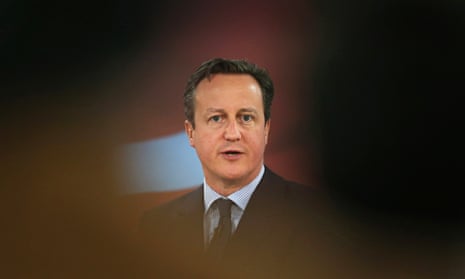It has been my impression over the years that in the United Kingdom – still united at the time of writing – governments tend to lose elections rather than oppositions winning them. And if ever a government deserved to lose an election, it is this one.
Memories of prewar unemployment and the social insensitivity of the Tories were enough to drive Churchill out in 1945. But in 1951, having achieved much in a period when austerity was necessary and not a political stratagem, the Attlee government was tired and it was “time for a change”.
There was not another Labour government until 1964, after what Harold Wilson used to term with relish “13 wasted years”. In fact, those had been the “never had it so good” years, and a succession of prime ministers – Churchill, Eden, Macmillan and Douglas-Home – ensured that it was a long while before the public decided it was indeed time for a change.
Wilson’s Labour government lost in 1970 principally because a rogue set of overseas trade figures gave the impression that its economic policies had failed. Sir Edward Heath’s government lost the 1974 election owing to a real failure of policy; and in 1979 a sea of troubles and a winter of discontent led to the Callaghan government losing that election. It was most certainly a case of Labour losing rather than Mrs Thatcher – not half as popular as Jim Callaghan – winning.
But, my goodness, she then won a series of elections, until her time was up. The poll tax, her increasingly high-handed attitude to colleagues, not least over Europe, and a rebellion of previously loyal colleagues saw her off.
Much criticism has been laid at Neil Kinnock’s door over his failure to win in 1992. But what people forget is the clever way in which, by rejecting Thatcher and backing the personable John Major, the Conservatives gained a new lease of life. In my view, the Conservatives would have lost the 1992 election had Thatcher still been leader.
Although Tony Blair received the lion’s share of the credit, the 1997 election was really another example of a government being thrown out. I think it was my old friend Kenneth Clarke who said Labour would have won in 1997 if it had been led by a monkey. And notwithstanding the fact that he had “saved the world”, Gordon Brown and his team were unceremoniously thrown out in 2010. Again, it was they who lost rather than the Tories who won.
The reason why I think the present lot should be thrown out is not only that their economic strategy has been misconceived and socially damaging, but because they are planning more of the same. When I say “they”, I am of course referring to the Conservatives, because even the Liberal Democrat chief secretary to the Treasury, Danny Alexander, having gone along with the austerity programme so far, has decided that enough is enough.
Anyone who studies the evidence and is not misled by the shameless coalition propaganda – “Labour’s mess” etc – knows that the financial crisis was not caused by Brown, and that the economy was actually on the mend until Cameron and Osborne introduced their austerity programme.
Austerity was meant to revive the animal spirits of business, but in fact did the reverse, as Keynesian economists feared. It was as near as you can get to a scientific experiment in economics. The austerity brigade’s confident forecasts turned out to be rubbish, and we had several years of “flatlining”. The eventual recovery was welcome, but not caused by the wholly unnecessary austerity that preceded it.
Shadow chancellor Ed Balls has been criticised for going on about flatlining, but he was right. In an interesting interview with the New Statesman recently, Balls noted the widespread observation that Osborne “basically had to give up” his deficit reduction plan halfway through. “The deficit’s just not come down at all in the last two-and-a-half years. The trouble is he’s learned the wrong lesson, and he thinks now, at the beginning of the next parliament, you should go back to the plan at the beginning of the last one.”
But many people who heard Balls on the Today programme last week were appalled by the way he too went on about the deficit. “There is not a cigarette paper between the parties,” observed one friend of mine. Yet there is: it is just that Labour are so defensive that they manage to antagonise their own supporters. Sometimes I am tempted to think that the obsession with “the deficit” – shared, to their shame, by most BBC interviewers — suits rightwing Conservatives because it is an excuse for bashing the public sector, and suits the shadow chancellor because it is a useful weapon to scare would-be spending ministers.
In fact he is planning, sensibly, to borrow for capital investment, and his plans for cuts are a lot less severe than those of Osborne, although they are still cuts, and that worries many of us.
It is interesting that a government so obsessed with the perils of borrowing should now be encouraging, via Right to Buy, loans to buy houses.
It makes sense to borrow for things like house purchases. The obsession with cutting deficits too fast was well satirised by the comedian Jeremy Hardy recently on The News Quiz. “‘So you’ve got a mortgage?’ ‘Yes.’ ‘Right. So you should stop feeding your children. Don’t feed your children until you’ve paid it all back to the Woolwich. That’s sensible economics… let’s not go back to the bad old days of having mortgages and feeding children.”

